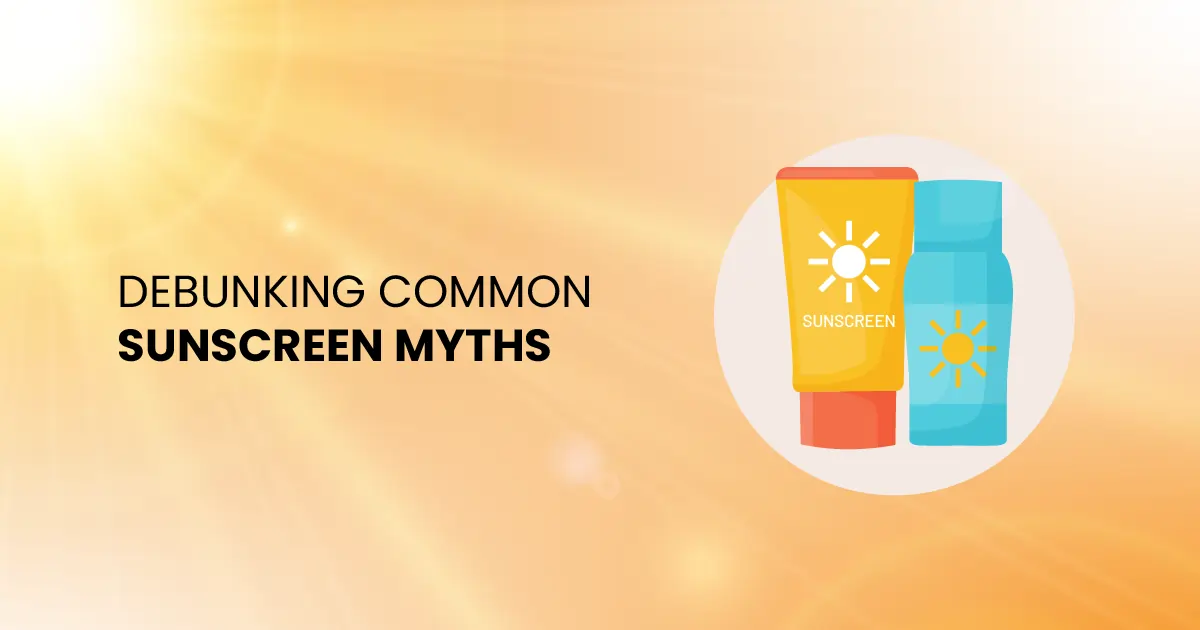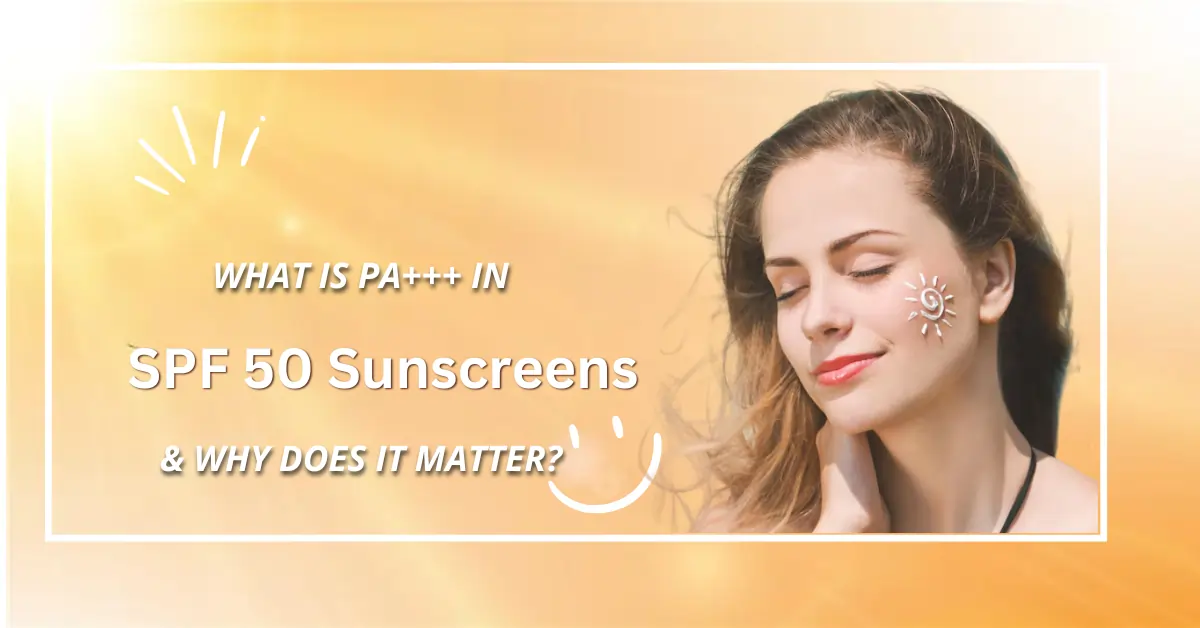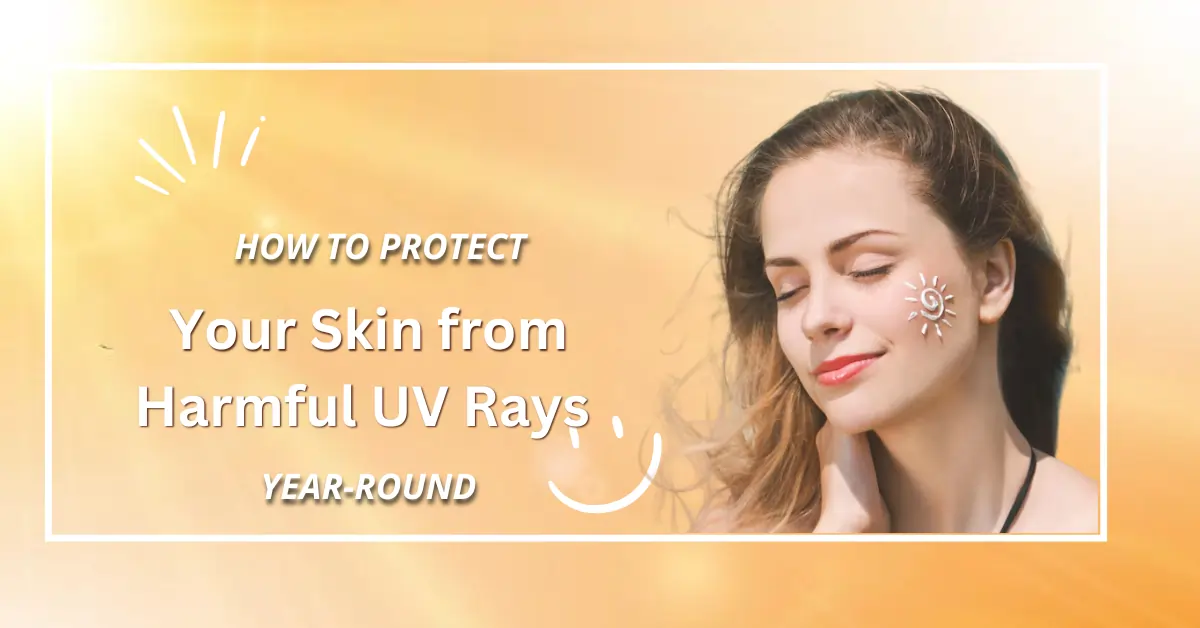
Debunking Common Sunscreen Myths
In the skincare world, there’s a lot of confusion about sunscreen. Many people believe in myths that can misguide them. It’s important to understand that everyone is susceptible to the harmful effects of UV rays, and sunscreen remains crucial for preventing sunburn and long-term risk of skin damage. It is essential to bust these sunscreen myths in order to create awareness of proper sun care.
Common Sunscreen Myths
Myth 1: Sunscreen is only for Sunny Days
Sunscreen isn’t just for those sunny summer days at the beach. UV rays are present even on cloudy or overcast days. Up to 80% of UV radiation can penetrate cloud cover, meaning your skin is at risk of sun exposure and damage regardless of the weather. Make sunscreen a daily habit, and apply it even on cloudy days to ensure your skin is consistently protected.
Myth 2: Dark Skin Doesn’t Need Sunscreen
It’s a common misconception that individuals with darker skin tones are immune to the harmful effects of the sun. While it’s true that they have more melanin, which provides some natural or a little protection, it doesn’t make them invulnerable to sun damage. Dark-skinned people can still get sunburned and are at risk for skin cancer. From lighter skin tones, sensitive skin to all skin types, sunscreen is essential for all.
Myth 3: You Don’t Need to Reapply Sunscreen if It’s Waterproof
Waterproof sunscreen is designed to be more resistant to water. Whether you’re swimming or sweating, reapplying sunscreen is crucial in such circumstances. Follow the instructions for the recommended reapplication intervals, usually every 2 hours, to maintain proper UV protection on that time of day.
Myth 4: Men Don’t Need SPF
It’s a common myth that men have a natural resistance to sunburn and UV damage. While it’s true that certain factors, like melanin levels, can provide some protection, it’s not a reason to skip SPF altogether. Men, just like women, can get sunburned and are susceptible to long-term skin damage.
The truth is, that men are often less diligent with skincare and sun protection. However, this negligence doesn’t make them immune to the harmful effects of the sun. Sunburn doesn’t discriminate based on gender, and skin damage can affect everyone.
Myth 5: Sunscreen Alone Is Sufficient for Complete Sun Protection
Sunscreen is a crucial component of sun protection, but it’s not the only one. To fully safeguard your skin from direct sunlight, consider additional measures such as wearing protective clothing, wide-brimmed hats, sunglasses, and seeking shade during peak sun hours. Combining these precautions with sunscreen ensures comprehensive protection from UVA rays and UVB rays.
Myth 6: All Sunscreens are the Same
There are mainly three main types of sunscreen: chemical sunscreens, physical sunscreens (mineral sunscreens), and hybrid sunscreens. Chemical sunscreens contain organic compounds that absorb UV rays, and physical ones contain minerals like zinc oxide and/or Iron oxide that reflect sun rays. Whereas hybrid sunscreens consist of both chemical and mineral compounds. Based on your skin type, it’s essential to choose the best sunscreen.
Myth 7: Expensive Sunscreens are Always Better
Price doesn’t necessarily determine the quality of a sunscreen. Some affordable options offer excellent protection, while expensive ones may not be suitable for your skin. What matters the most is the Sun Protection Factor level, broad-spectrum coverage, and compatibility with your skin type. Read product labels and reviews to find the best sunscreen based on your needs.
Myth 8: Sunscreen Doesn’t Expire
Like any skincare product, sunscreen has a shelf life. The active ingredients in sunscreen can degrade over time, reducing its effectiveness. Check the expiration date on the product and discard it if it has expired. Also, store sunscreen in a cool, dry place to maintain its potency.
Myth 9: Tanning Oils are as Effective as Sunscreen
Tanning oils may enhance your tan, but they offer little to no protection against harmful UV rays. Using tanning oils without sunscreen can lead to severe sunburn and increase the risk of skin cancer. If you want a tan, consider self-tanning products or bronzers as a safer alternative.
Myth 10: Sunscreen Is Only for the Face
While applying sunscreen on your face, don’t forget to protect the rest of your body. The neck, chest, arms, and legs are also prone to sun damage. Apply sunscreen to all exposed areas, and use a broad-spectrum sunscreen with at least SPF 30 to higher SPFs for your face and body.
FAQs
Do I need to use sunscreen for my arms and legs?
While it is imperative to use sunscreen on your face, it’s equally important to safeguard the other parts of your body. The neck, chest, arms, and legs are equally vulnerable to sun damage.
Do I still need to wear sunscreen even if it’s not sunny?
UV rays are around even on days that are not sunny, meaning your skin is at risk of sun damage regardless of the weather. To keep your skin safe, use sunscreen every day. Daily sunscreen use still allows for enough vitamin D from brief sun exposure, diet, and supplements. Protect your skin by making sunscreen a daily routine.
Are sunscreens waterproof?
Water-resistant sunscreens offer some degree of protection while swimming or sweating, but they still require reapplication after water exposure or physical activity to maintain their effectiveness.
Conclusion
In the quest for healthy and resilient skin, dispelling the sunscreen myths surrounding sunscreen is a fundamental step towards informed skin care practices. By debunking sunscreen myths like sunscreen is only for sunny days or that men don’t need it, we help people make smarter choices that lower the chances of sun-related or skin related issues like wrinkles, and risk of skin cancer. Let’s stick to the facts, look after our skin, and make sure we’re all sun-smart for healthy and sunny days ahead.





